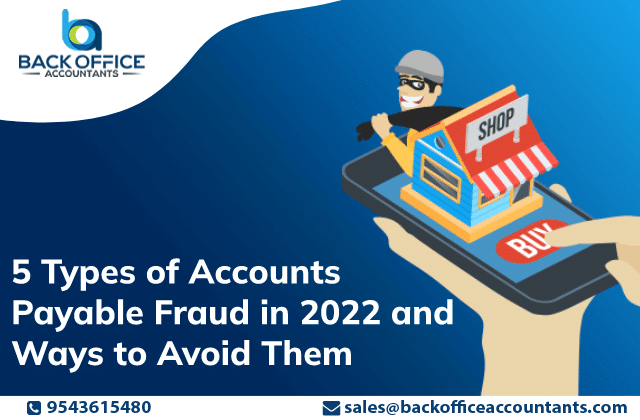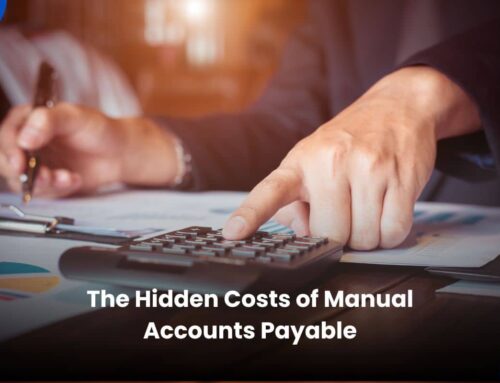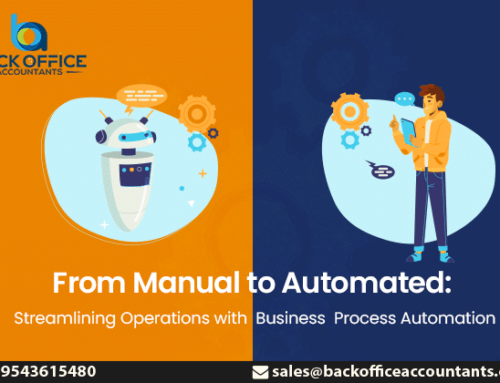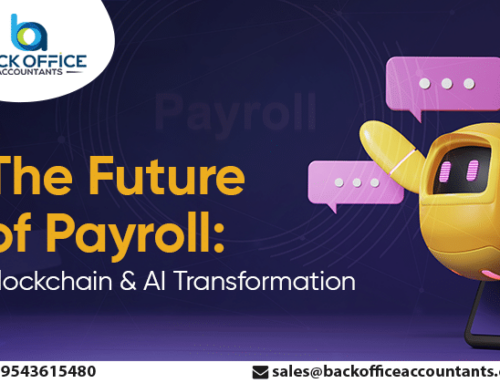Given they are the epicentres for payment processing, Accounts Payable has always been the ripe ground of payment frauds worldwide. According to one study, businesses lost more than $9 billion due to fraud in 2020-21 in which 22% of businesses lost upwards of $1 million to AP fraud.
A complicated process, especially the manual AP is marred by bureaucratic red tape and this lack of visibility in large businesses often makes it a prime target for fraudsters. On the other hand, the lack of the right resources make small businesses also a target – staff and employees are conned into the fraud.
Identify the AP Frauds before They Happen:
Lack of right visibility and control along with increased sophistication of the fraudsters lead to different types of AP frauds in the past few years. As a remote accounting firm Back Office Accountants often help businesses uncover the fraud and guard them against potential attacks along with our outsourced accounts payable services. And if you are a small and medium business that is looking to prevent AP fraud then this blog is for you.
With the inputs of our Accounts Payable experts at Back Office Accountants, we identify the common AP frauds that businesses must be aware and then give out ways to prevent them. Read on:
1. Billing Frauds: Billing schemes are often pulled by the employees with the help of their inside knowledge of a business’s AP process. For example, an employee may generate fake invoices and have them paid for the goods/services that were never delivered in the first place.
Fraud also can happen by cutting multiple checks in the name of the vendor. The respective AP employee may cut two checks and ask the vendor to return a check which is then cashed by the employee by setting up a new accounting for the vendor. In essence billing fraud may involve:
a.False invoice creation for undelivered services.
b.Pass-through schemes where an employee takes a cut of the payment.
c.Initiating payments for purchase orders intended for personal use.
d.Fake vendor account setup for rerouting money into personal accounts.
2. Check Fraud: Check fraud happens to be the most common type of fraud that is suffered by businesses all around the world. It’s estimated that 75% of the businesses often experience check related fraud at some point of time in their trade. This type of fraud may involve manipulation of the amount on the check, name of the payee or crafting new checks to reroute them for personal expenses.
3.Expense Reimbursement Fraud: Frauds related to expenses can be difficult to track as they are the party of long-con which can last for years. Expense related frauds can happen in two ways:
a.Purchase made by employees on their personal cards are shown as business expenses with duplicate reports. Even nominal fictitious purchases may be made and falsely reported which usually add up to a bigger sum in the longer run.
b.Employees may make purchases on personal cards and then return the particular items while claiming the expenses from businesses. If you are a small and medium business that often uses a personal card for expenses you can avoid this fraud by choosing a corporate credit card for purchases.
4. ACH Frauds: ACH frauds are a result of illegal access to the finances while they pass throughan automated clearing house which is set up to process electronic funds. Fraudsters (employees or hackers) who gain access to the key files may perform Vendor Impersonating Fraud to divert payments into their personal accounts.
5. Kickback Schemes: Kickback schemes are hard to detect but can be stealthily dangerous. These frauds are often be pulled with the help of an insider who can influence the decision of vendor selection. By persuading the selection of vendor and bypassing the protocols the insider may pocket money while the business makes not so optimized decisions even losing money in the longer run.
In addition to the above, there are plenty of other frauds which include – Phantom vendors, vendor master file changes, rounded-amount invoices, abnormal invoice activity and more. Almost all of these frauds are triggered by a lack of visibility in the AP process. The first step a business can take to reduce the risk of fraud in their AP is to automate their AP process with a streamlined workflow, separation of duties and diligent monitoring.
If you are a business that lacks expertise to craft a strong AP workflow then you can seek help from remote accounting firms like Back Office Accountants.
How Back Office Accountants can help?
As one of the most trusted accounting firms specializing in outsourced accounts payable services Back Office Accountants leverage the latest AP automation technologies to build a robust AP workflow process for you.
Bering the experts in AP fraud detection, our team of CPAs and AP experts lay strong foundations for a safe and trusted AP process and execute it for you with perfection. If you are a business that is looking to prevent AP fraud you can choose Back Office Accountants to outsource accounts payable services. You can contact us here: https://www.backofficeaccountants.com/







